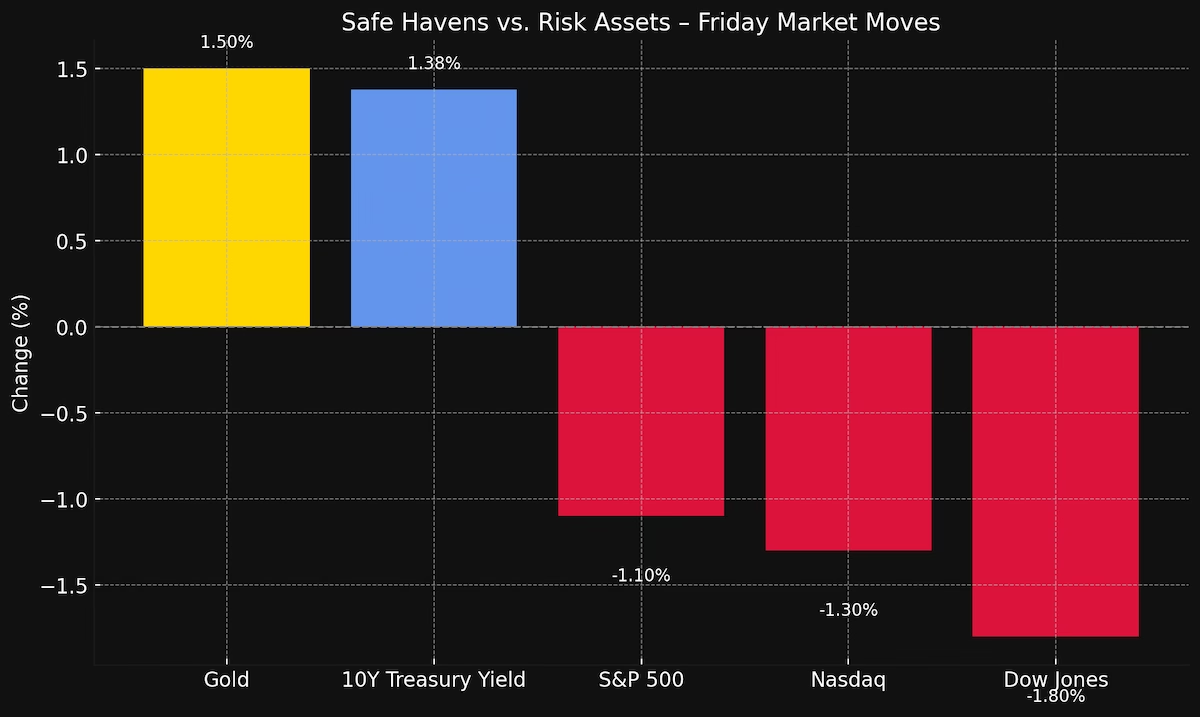Oil Prices Surge on Escalating Middle East Conflict
NEW YORK — Global oil markets roared higher on Friday after Israel launched strikes against Iranian military and nuclear infrastructure, fueling investor fears that a broader regional conflict could disrupt global energy supplies.
U.S. benchmark crude spiked 7.3% to $72.98 per barrel, reclaiming levels not seen since early this year. International Brent crude climbed 7% to settle at $74.23. The price surge reflects mounting anxiety over the stability of oil exports from Iran, a major global producer despite facing Western sanctions.
The possibility of military escalation poses serious threats to shipping routes—especially the Strait of Hormuz, a vital maritime chokepoint off Iran’s southern coast through which a significant portion of the world’s oil flows.
"In past confrontations between Israel and Iran, oil prices initially spiked but later stabilized once it was clear that supply would not be impacted." — Richard Joswick, S&P Global Commodity Insights
Wall Street anxiously awaited further developments after Iran’s state media reported the launch of ballistic missiles toward Israeli targets. Although oil prices have not yet surpassed their earlier 2024 highs, analysts view the current volatility as a blow to investor sentiment.
U.S. Stocks Tumble on Geopolitical Risk
The S&P 500 fell 1.1%, the Dow Jones Industrial Average lost 1.8%, and the Nasdaq Composite dropped 1.3%—shedding gains from a recent rally that had pushed major indices close to record highs.
Fuel-sensitive sectors were hit hardest. Cruise operator Carnival Corp. sank 5%, while Norwegian Cruise Line Holdings and United Airlines both slumped 4.5% to 5% as investors weighed the economic impact of higher fuel costs and dampened consumer confidence.
Meanwhile, oil producers benefited from the rising crude prices. ExxonMobil shares rose 2.1%, and ConocoPhillips advanced 1.9%, buoyed by prospects for higher margins amid elevated energy prices.
Defense stocks also rallied, with Lockheed Martin, Northrop Grumman, and RTX (formerly Raytheon) all gaining over 3%, as markets positioned for increased military spending and geopolitical instability.
Gold, Bonds, and Inflation Fears Reshape Investment Landscape
The price of gold rose 1.5% as investors sought traditional safe havens. But U.S. Treasury bonds, typically a sanctuary in times of uncertainty, bucked the trend—falling in price and driving yields higher.
The 10-year Treasury yield climbed to 4.42%, up from 4.36% on Thursday. Analysts attributed the move not only to geopolitical concerns but also to renewed inflation worries sparked by the oil spike.

Higher yields typically pressure equities and raise borrowing costs for businesses and consumers. The situation is especially delicate given that U.S. inflation has recently hovered near the Federal Reserve’s 2% target, and concerns are growing that energy price spikes could reignite price pressures.
Friday’s preliminary consumer sentiment report from the University of Michigan added to the complexity. It showed a surprising rebound in confidence—the first in six months—citing relief from paused tariffs and easing inflation expectations.
Earnings and IPOs Add to the Market Jitters
Among corporate movers, Adobe slid 5.2% despite exceeding earnings estimates for the quarter. Analysts cited investor disappointment with the company’s modest revenue guidance for upcoming quarters.
Meanwhile, Brazilian meat conglomerate JBS made a rocky debut on the New York Stock Exchange, falling 4.4%. The IPO, aimed at attracting global investors, faced backlash from environmental groups and U.S. lawmakers over allegations of corruption, anti-competitive behavior, and deforestation.
Global Markets Mirror U.S. Sell-Off
Markets across Europe and Asia also closed in the red. France’s CAC 40 lost 1%, and Germany’s DAX fell 1.1%, reflecting a global flight to safety amid fears of a widening Middle East conflict and its potential consequences for the global economy.



